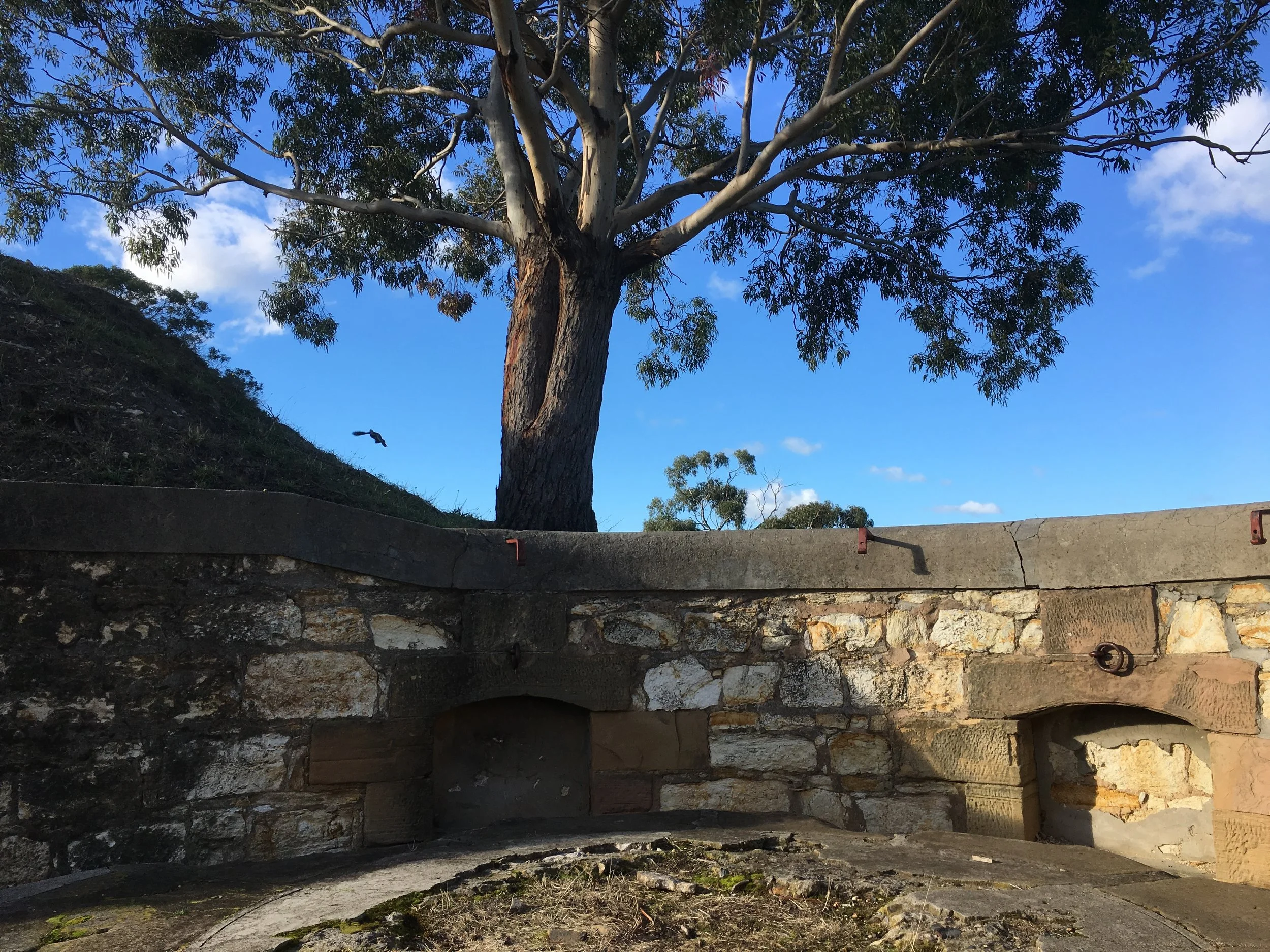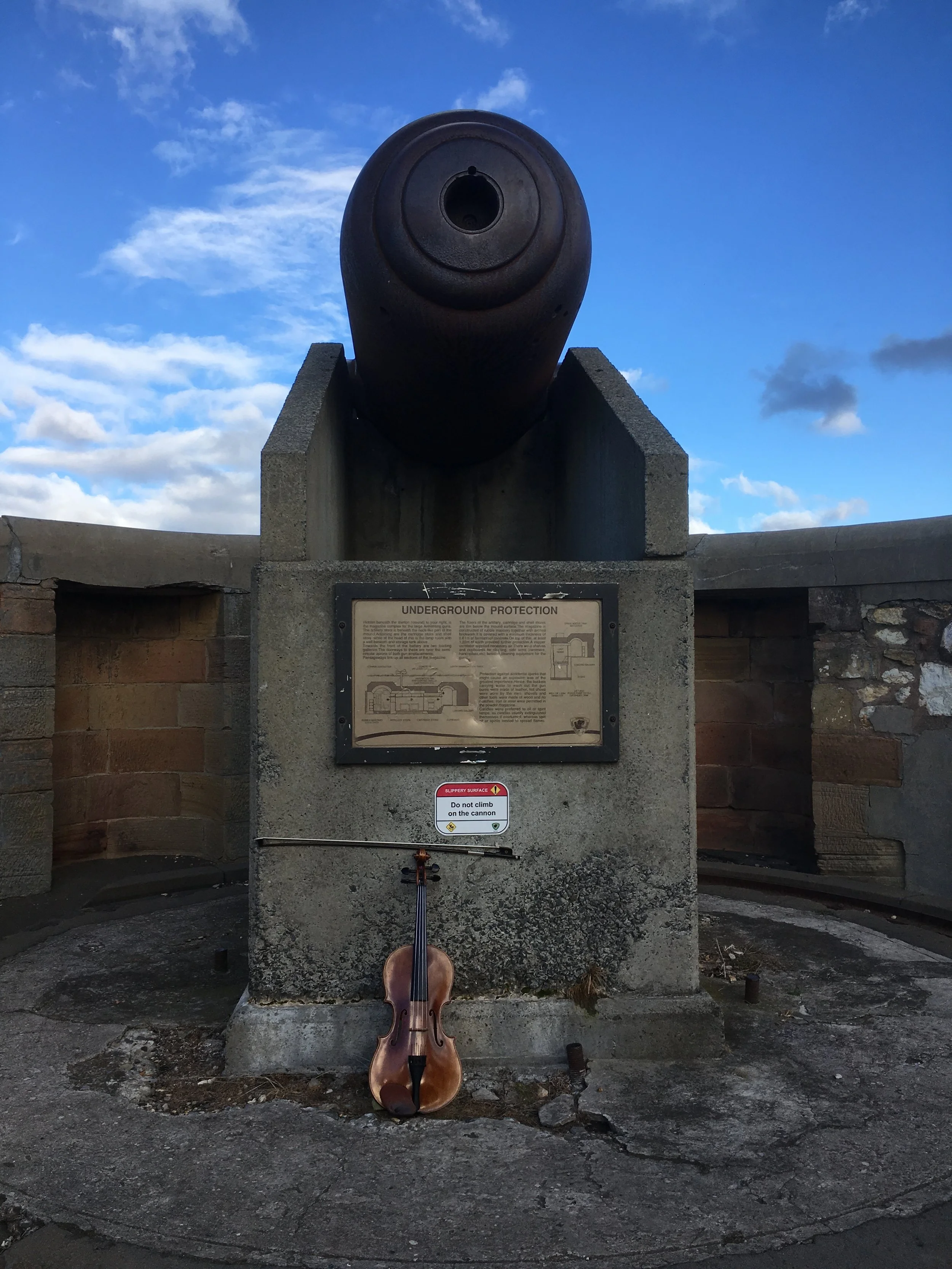At the Battery, Bellerive Tasmania
The sun stems July’s chill. It’s mid afternoon, two weeks after the solstice. Hobart glistens across the river as if summer is more than the future. I’m standing on a mound above the trenches that border the old fort in Bellerive, on the eastern shore of the Derwent. Two of the original four canons remain, pushing into the air above the stone walls like scalpels. The place has been renovated to a heritage park, with new stairs for safe entry into the corridors that circle within the mound. Each of the “rooms”, dark cloisters underground, are gated, locked to prevent graffiti artists, paedophiles and murderers.
As I move from the car towards the battlements, I notice a man holding a drone. I hesitate, thinking I do not wish to be interrupted, but I move on because he appears disinterested, getting ready to leave perhaps. I walk up and down the corridors, searching for a resonant space to play my viola. I unpack in a circle where a canon has been removed, leaving a broad ring of stone and concrete. Although the walls have been patched, mortar fragments litter the ground, crunch as I press my feet into them. A eucalypt stretches into the space between the wall and the sky, as if talking back to the possibility of violence here, in this quiet suburban street. I begin to play and at that moment I hear the drone, like a wasp, overhead. There it is, white and quivering, fifty metres above me. I move into the shelter of a wall, aware I cannot hide because there's no overhang or roof in the ramparts. I turn my back to the drone and accompany the whine, playing ponticello, or sul pont, on the A string, mimicking the microtonal movements in pitch. Whatever the photos reveal there will be no sound, just a woman in a black beanie, on a Sunday afternoon, in the ruins of a fort.
The drone retreats. Perhaps I sent it off with my glass-notes. I wipe the strings again, something more melodic, keeping the bow at the centre of the strings, digging in to make a big sound. I hear voices. “It’s a lady, playing the violin.” “Hello,” I call, and continue playing and making up poetic lines. The man and the small girl climb up the mound above the trench and walk towards the tree waving its branches like arms. He is telling her about the old ships that came up the Derwent, and of the canon, as if they speak for this town. She runs, singing, into the distance, playful, dismissive. I play on and on.

